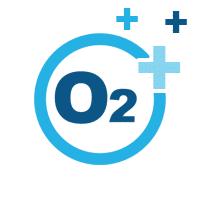Brain Damage
Brain damage is an injury that causes the deterioration or destruction of brain cells. Brain damage includes both Traumatic Brain Injury (TBI), caused by an external force, and Acquired Brain Injury (ABI), occurring at the cellular level. The severity of damage can vary based on they type of injury, but can range from headaches, confusion, and memory problems, to more severe cognitive, behavioral, and physical disabilities.
Benefits of Hyperbaric Oxygen Therapy for Brain Damage:

Increases Amount of Oxygen in the Blood
Stimulates development of new blood vessels from pre-existing vessels as well as the natural development of new blood vessels.

Reduces Inflammation & Swelling
Suppresses the cellular activity of the immune system which triggers swelling when an injury or damage to the body occurs. While this reaction is meant to start healing and protect from injury it can result in secondary injury, pain, and prolonged recovery time.

Preserves, Repairs, & Enhances Cellular Functions
Boosts cellular metabolism, promotes rapid cell reproduction, and enhances collagen synthesis. Collagen is a protein in connective tissues like skin.
Key Research on Hyperbaric Oxygen Therapy for Brain Damage
Recent News on Hyperbaric Oxygen Therapy for Brain Damage
Can Hyperbaric Oxygen Heal Your Brain?
Research supports hyperbaric oxygen therapy as a treatment for mild brain injuries and Alzheimers disease, but it remains controversial as a treatment for autism.(Nakleyka/Shuttertock) A new study shows promising results for this alternative treatment BY JENNIFER...
Essentia Health to study impact of hyperbaric oxygen on post-concussion adults
Essentia Health-Fargo will launch the “hyperbaric oxygen for post-concussion” study to examine the impact of hyperbaric oxygen on adults who have persistent symptoms from concussion. This study will be led by Dr. Olayinka Ajayi, a hyperbaric medicine physician; Dr....
Maroon wins Arthur C. Rettig Award
Image Credits @drjosephmaroon Steelers' neurosurgeon Joseph C. Maroon, MD, was awarded the Arthur C. Rettig Award for Academic Excellence by NFL Physicians Society (NFLPS). Dr. Maroon was presented the award at the NFLPS scientific meeting during the 2022 NFL...
Related Indications
Schedule a Consultation
Additional Research
Hyperbaric oxygen therapy reduces astrogliosis and helps to recovery brain damage in hydrocephalic young rats.
Abstract: We investigated the possible beneficial effects that hyperbaric oxygen therapy could offer in different brain structures affected by ventriculomegaly in pup rats submitted to experimental hydrocephalus. Seven-day-old Wistar rats were submitted to...
Case control study: hyperbaric oxygen treatment of mild traumatic brain injury persistent post-concussion syndrome and post-traumatic stress disorder.
Mild traumatic brain injury (TBI) persistent post-concussion syndrome (PPCS) and post-traumatic stress disorder (PTSD) are epidemic in United States Iraq and Afghanistan War veterans. Treatment of the combined diagnoses is limited. The aim of this study is to assess safety, feasibility, and effectiveness of hyperbaric oxygen treatments (HBOT) for mild TBI PPCS and PTSD. Thirty military subjects aged 18-65 with PPCS with or without PTSD and from one or more blast-induced mild-moderate traumatic brain injuries that were a minimum of 1 year old and occurred after 9/11/2001 were studied. The measures included symptom lists, physical exam, neuropsychological and psychological testing on 29 subjects (1 dropout) and SPECT brain imaging pre and post HBOT.
Hyperbaric Oxygen Therapy in the Treatment of Acute Severe Traumatic Brain Injury: a Systematic Review.
There has been no major advancement in a quarter of a century for the treatment of acute severe traumatic brain injury (TBI). This review summarizes 40 years of clinical and pre-clinical research on the treatment of acute TBI with hyperbaric oxygen therapy (HBO2) in the context of an impending National Institute of Neurologic Disorders and Stroke (NINDS)-funded, multicenter, randomized, adaptive Phase II clinical trial – the Hyperbaric Oxygen Brain Injury Treatment (HOBIT) trial. Thirty studies (8 clinical and 22 pre-clinical) that administered HBO2 within 30 days of a TBI were identified from PubMed searches. The pre-clinical studies consistently reported positive treatment effects across a variety of outcome measures with almost no safety concerns, thus providing strong proof-of-concept evidence for treating severe TBI in the acute setting.
